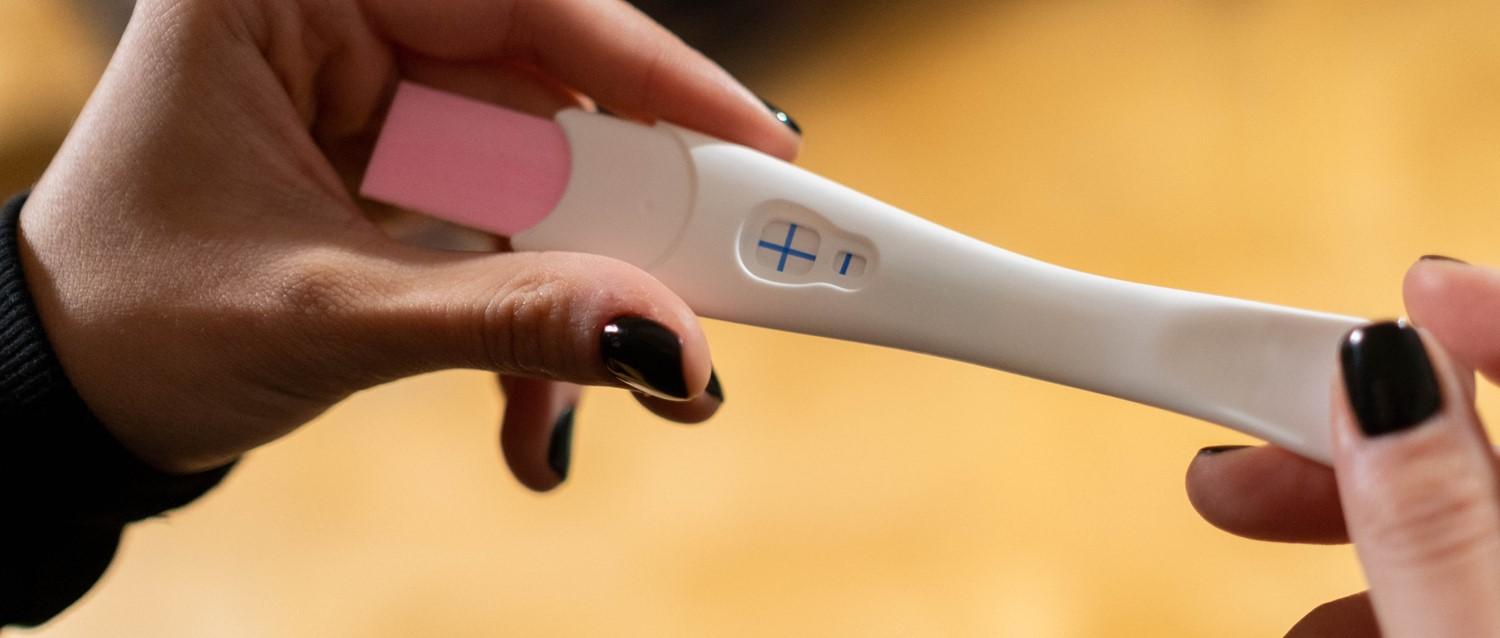
Video: Can stress cause a miscarriage?
Peer reviewed by Dr Hayley Willacy, FRCGP Last updated by Dr Sarah Jarvis MBE, FRCGPLast updated 18 Mar 2018
- HerunterladenHerunterladen
- Teilen Sie
Teilen Sie
A miscarriage is a tough time for all involved, and you're likely to have many questions about the physical and mental experience you're going through. Our experts have put a series of answers together to try and support you.
In diesem Artikel:
Playlist: Miscarriage Q&A
9 videos
Kann Stress eine Fehlgeburt verursachen?
Dr. Sarah Jarvis MBE, FRCGP
Kann Stress eine Fehlgeburt verursachen?
Dr. Sarah Jarvis MBE, FRCGP

Warum kommt es zu Fehlgeburten?
Dr. Sarah Jarvis MBE, FRCGP

Wann ist die Wahrscheinlichkeit einer Fehlgeburt am größten?
Dr. Sarah Jarvis MBE, FRCGP

Wie weit kann eine Fehlgeburt fortgeschritten sein?
Dr. Sarah Jarvis MBE, FRCGP

Wie stark tut eine Fehlgeburt weh?
Dr. Sarah Jarvis MBE, FRCGP

Wie stark blutet man bei einer Fehlgeburt?
Dr. Sarah Jarvis MBE, FRCGP

Wen sollten Sie anrufen, wenn Sie eine Fehlgeburt haben?
Dr. Sarah Jarvis MBE, FRCGP

Wie wird mit einer Fehlgeburt umgegangen?
Dr. Sarah Jarvis MBE, FRCGP

Kann eine Fehlgeburt fehldiagnostiziert werden?
Dr. Sarah Jarvis MBE, FRCGP
Lesen Sie unten weiter
Kann Stress eine Fehlgeburt verursachen?
Dr Sarah Jarvis, GP and Clinical Director of Patient.info
I don’t think anybody’s life is without stresses and strains, and there has been lots of concern as to whether or not stress can cause a miscarriage. The problem is, if so, how much stress, how much stress is too much?
What we do know is that in vast majority of cases miscarriage is nothing to do with stress. Its to do with a random problem in the genetic make up of your baby. Which means that sadly, whether stressed or not that embryo would never have survived to become a baby.
Patientenauswahlen für Blutungen in der Schwangerschaft

Schwangerschaft
Was ist der Unterschied zwischen einer Einnistungsblutung und einer Periode?
Der Kinderwunsch und die ersten Tage der Schwangerschaft können eine stressige Zeit sein, in der Sie auf Anzeichen und Symptome achten oder sich fragen, ob das, was mit Ihrem Körper geschieht, normal ist. Wenn Sie versuchen, schwanger zu werden, kann eine Schmierblutung besonders beunruhigend sein. Obwohl es sich um eine Periode handeln könnte, kann es sich auch um eine Einnistungsblutung handeln - ein Zeichen für eine frühe Schwangerschaft.
von Lydia Smith

Schwangerschaft
Fehlgeburten und Blutungen in der Frühschwangerschaft
Many women experience some bleeding in early pregnancy. About 1 in 5 recognised pregnancies end in miscarriage. Most are caused by a one-off fault in the genes. Seek medical advice if you have vaginal bleeding when you are pregnant. Call an ambulance if the bleeding is very heavy or if you have severe tummy (abdominal) pain. Bleeding with pain can also be a sign of an ectopic pregnancy. This is less common than miscarriage but is serious and needs urgent medical care. Losing a pregnancy can be hard for both partners. However, most couples who experience this will go on to have a successful pregnancy next time.
von Dr. Rosalyn Adleman, MRCGP
Warum kommt es zu Fehlgeburten?
Dr Sarah Jarvis, GP and Clinical Director of Patient.info
Miscarriages are really common. Probably one in three or one in four women has had a miscarriage at least once, if she has ever been pregnant. By far the most common cause for miscarriages, is a problem with the chromosome in the embryo, that’s a random problem with the genetic makeup either of the egg, or of the sperm or a combination of the two. It is nothing to do with you and it usually doesn’t mean that you are at increased risk of miscarriage in the future.
Sometimes problems with the mother’s body, so a problem with the womb for instance or occasionally problems with her immune response or other problems in her system such as a hormone problem can cause miscarriages.
Lesen Sie unten weiter
Wann ist die Wahrscheinlichkeit einer Fehlgeburt am größten?
Dr Sarah Jarvis, GP and Clinical Director of Patient.info
A miscarriage can occur anytime from when that first pregnancy test is positive until the baby is capable of sustaining life on his/her own, that’s about 23 weeks of pregnancy. By far the most common time to have a miscarriage is in the first trimester, the first 12 weeks of pregnancy and most common of all in the first 8 weeks or so, from the date of your last period.
Now, some women don’t have any symptoms of miscarriage and the first they know that they have had a miscarriage is that when the bad news is broken to them, when they have their first scan. However the most common time to get symptoms is usually is about 6-8 weeks pregnant.
Wie weit kann eine Fehlgeburt fortgeschritten sein?
Dr Sarah Jarvis, GP and Clinical Director of Patient.info
Miscarriage is the loss of a baby anytime from your first pregnancy test until the time that the baby could live on its own, that’s at about 23 weeks. By far the most common time for miscarriage to happen is in the first 12 weeks of pregnancy, particularly, in the first 8 weeks.
Lesen Sie unten weiter
Wie stark tut eine Fehlgeburt weh?
Dr Sarah Jarvis, GP and Clinical Director of Patient.info
A miscarriage is any loss of a baby between the time of your first pregnancy test and the time that it could live on its own, about 23 weeks of pregnancy. The vast majority of miscarriages are in the first 12 weeks of pregnancy and often in the first 8 weeks.
Some women don’t know they have had a miscarriage until they have routine scan and discover that they have. But one of the most common symptoms of miscarriage is vaginal bleeding along with pain which is often described as like a severe period pain. If however you get severe pain, particularly, if it is one side of your tummy, it is really important to get it checked out because a miscarriage can be mistaken for an ectopic pregnancy, that’s a pregnancy developing outside the womb and that can become a medical emergency.
Wie stark blutet man bei einer Fehlgeburt?
Dr Sarah Jarvis, GP and Clinical Director of Patient.info
The amount of bleeding you get when you have a miscarriage varies enormously. Some women don’t bleed at all, in fact, they don’t know they have had a miscarriage until they have their first ultrasound scan and discover very tragically that they have lost the baby.
But some women do bleed and that can vary from a light period, particularly, if the miscarriage is very early, say in the first couple of weeks after you missed your period to getting really quite a lot of bleeding.
With a complete miscarriage you often get clots and you might pass what we call products, in other words foetal tissue or tissue from the inside of the womb. If you do get vaginal bleeding during pregnancy and particularly if you also get pain, especially, if it is severe or one side, do get yourself checked out
Wen sollten Sie anrufen, wenn Sie eine Fehlgeburt haben?
Dr Sarah Jarvis, GP and Clinical Director of Patient.info
There are several different types of miscarriage. One is called the missed miscarriage and you may not know you have that at all, until you have an ultrasound scan and discover that your baby has not survived.
Another is what’s called and incomplete miscarriage which is still ongoing and a third which happens quite often in the very early stages of first two weeks of pregnancy is called the complete miscarriage. With both of these you usually get a vaginal bleeding, quite often with ‘crampy’ abdominal pains and sometimes you might pass quite a lot of blood, including clots and sometimes tissue which is products from your womb.
If you have these, you should always seek medical help. How urgently you should do that, depends upon how much pain you are in. If you get severe pain and particularly if you have pain on one side of your tummy which is severe, you should seek emergency help even from the out of hours service if your GP surgery isn’t open because it could be an ectopic pregnancy, a pregnancy outside the womb, which can be a medical emergency.
Wie wird mit einer Fehlgeburt umgegangen?
Dr Sarah Jarvis, GP and Clinical Director of Patient.info
How miscarriage is dealt with very much depends on what is found when you have an ultrasound scan. Sometimes you can have what is called the complete miscarriage where everything both the embryo and all the tissues surrounding it has already come out of the womb.
This will often mean that the bleeding has stopped and in this case you will often won’t need any treatment at all. Sometimes you might need medical treatment to help to expel that last tissue that previously surrounded the baby. And in some cases you might need a minor surgical procedure, usually under general anaesthetic sometimes under local, to get rid of any tissue that previously surrounded the embryo
Kann eine Fehlgeburt fehldiagnostiziert werden?
Dr Sarah Jarvis, GP and Clinical Director of Patient.info
If your doctor thinks you might be having or have had a miscarriage they will refer you for an ultrasound scan. On the ultrasound scan the healthcare professional will be looking to check that there is a sac for the baby inside the womb and that they can see that baby and that it contains a heart beat.
Your baby’s heart beat can usually be seen from about 5½ weeks after your last period. If the miscarriage is very early then the heartbeat may not be visible and your doctor may ask you to come back a week later and see if it is visible. Very occasionally, women are told that they have had a miscarriage only to discover that the baby has survived. But more commonly, the concern about misdiagnosing a miscarriage is that we might think it was a miscarriage, when in fact it was a pregnancy outside the womb, a so called ectopic pregnancy. That’s extremely uncommon, but if you do have bleeding with pain particularly severe pain on one side, you must always seek help.
Artikel Geschichte
Die Informationen auf dieser Seite wurden von qualifizierten Klinikern geprüft.
18 Mar 2018 | Latest version

Fragen, teilen, verbinden.
Stöbern Sie in Diskussionen, stellen Sie Fragen, und tauschen Sie Erfahrungen zu Hunderten von Gesundheitsthemen aus.

Fühlen Sie sich unwohl?
Beurteilen Sie Ihre Symptome online und kostenlos